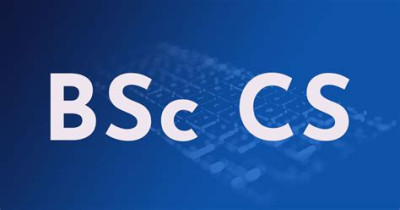Join now to start learning
Learn from our quality instructors!
Get startedThis website uses cookies to personalize content and analyse traffic in order to offer you a better experience. Cookie policy
Study any topic, anytime. explore thousands of courses for the lowest price ever!




Find the right course for you

Explore a variety of fresh topics

Learn on your schedule
These are the most popular courses among listen courses learners worldwide

0
(0 Reviews)
 Compare
Compare
BCom stands for Bachelor of Commerce is a 3-year undergraduate course for students who have cleared 12 th standard with 50% aggregate. BCom Admissions are based on merit as well as entrance exams such as CUET, PU CET, NPAT, etc.
07:00:00 Hours
Last updated Mon, 23-Sep-2024

0
(0 Reviews)
 Compare
Compare
BSc simply stands for Bachelor of Science degree. A BSc Hons is a BSc with ‘honours’, which usually involves a longer syllabus and completing a dissertation. How long is a BSc degree? A BSc degree typically takes three to four years to complete.
07:00:00 Hours
Last updated Mon, 23-Sep-2024

0
(0 Reviews)
 Compare
Compare
A BA degree stands for a Bachelor of Arts degree, and it's probably the most common major for college students to get.
08:00:00 Hours
Last updated Mon, 23-Sep-2024

0
(0 Reviews)
 Compare
Compare
The Bachelor of Management Studies (BMS) is an undergraduate degree designed to provide students with a comprehensive understanding of various aspects of business management. This program typically covers core subjects such as marketing, finance, human resources, operations, and entrepreneurship.
07:00:00 Hours
Last updated Mon, 23-Sep-2024
These are the most popular courses among listen courses learners worldwide
These are the most latest courses among listen courses learners worldwide

0
(0 Reviews)
 Compare
Compare
A Ph.D. in Commerce with a specialization in Accountancy is an advanced research degree focusing on the theoretical and practical aspects of accounting and finance. This program typically involves in-depth study of topics such as financial reporting, auditing, taxation, management accounting, and accounting information systems. Candidates engage in original research, contributing to the field's knowledge base, and often focus on contemporary issues like corporate governance, sustainability, and the impact of technology on accounting practices. Graduates are well-prepared for careers in academia, research, consulting, or high-level positions in the corporate sector.
36:00:00 Hours
Last updated Fri, 20-Sep-2024

0
(0 Reviews)
 Compare
Compare
A Ph.D. in English is an advanced academic degree focusing on the study of literature, language, and critical theory. The program typically involves rigorous coursework in various literary genres, historical contexts, and critical approaches. Students engage in original research, culminating in a dissertation that contributes new insights to the field. Key components include: 1. **Coursework:** In-depth study of literature, linguistics, and critical theory. 2. **Research:** Independent research projects, often leading to publications. 3. **Teaching:** Opportunities to gain teaching experience, typically through assistantships. 4. **Dissertation:** A significant research project that must be defended before a committee. Graduates pursue careers in academia, publishing, writing, and other fields where strong analytical and communication skills are valued.
17:00:00 Hours
Last updated Fri, 20-Sep-2024

0
(0 Reviews)
 Compare
Compare
A Ph.D. in Chemistry is an advanced academic degree focusing on in-depth research in various chemistry disciplines, such as organic, inorganic, physical, analytical, or biochemistry. It typically involves coursework, comprehensive exams, and a significant research project culminating in a dissertation. Students develop critical thinking, laboratory skills, and expertise in their chosen area, preparing them for careers in academia, industry, or government research. The program emphasizes innovation and contributes to the advancement of chemical knowledge and technology.
14:00:00 Hours
Last updated Fri, 20-Sep-2024

0
(0 Reviews)
 Compare
Compare
A Ph.D. in Zoology is an advanced research degree focused on the study of animal biology, behavior, ecology, and evolution. Candidates engage in rigorous coursework and original research, often specializing in areas such as conservation, genetics, physiology, or ethology. The program typically culminates in a dissertation that contributes new knowledge to the field. Graduates are prepared for careers in academia, research institutions, wildlife management, and environmental policy.
47:00:00 Hours
Last updated Fri, 20-Sep-2024

0
(0 Reviews)
 Compare
Compare
The Bachelor of Mass Media (BMM) is an undergraduate program designed to provide students with a comprehensive understanding of communication, media theory, and practical skills in various mass media fields. The curriculum typically covers topics such as journalism, advertising, public relations, digital media, and film studies. Through a blend of theoretical coursework and hands-on projects, students learn to analyze media content, create compelling narratives, and effectively engage with diverse audiences. This degree prepares graduates for a range of careers in media, communications, and related industries.
21:00:00 Hours
Last updated Fri, 20-Sep-2024

0
(0 Reviews)
 Compare
Compare
The Bachelor of Banking and Insurance (BBI) is a specialized undergraduate degree that focuses on the principles and practices of banking, finance, and insurance. ### Key Components: 1. **Core Subjects**: - **Banking Operations**: Understanding the structure, functions, and regulations of banks. - **Insurance Principles**: Learning about different types of insurance products, underwriting, and risk management. - **Financial Management**: Exploring financial analysis, investment strategies, and capital management. - **Regulatory Framework**: Examining laws and regulations governing banking and insurance sectors. 2. **Skills Development**: - **Analytical Skills**: Ability to assess financial risks and make informed decisions. - **Technical Proficiency**: Familiarity with financial software and tools used in banking and insurance. - **Customer Service**: Developing skills to effectively communicate and serve clients. 3. **Career Opportunities**: Graduates can pursue careers in: - Banking (e.g., loan officer, bank manager) - Insurance (e.g., claims adjuster, insurance broker) - Financial advisory - Risk management - Investment analysis ### Conclusion: The BBI program equips students with the knowledge and skills necessary for a successful career in the banking and insurance industries, providing a solid foundation for further studies or professional certifications.
10:00:00 Hours
Last updated Fri, 20-Sep-2024

0
(0 Reviews)
 Compare
Compare
The Bachelor of Commerce in Accounting and Finance (BAF) is an undergraduate program designed to provide students with a strong foundation in accounting principles and financial management. This degree covers key subjects such as financial accounting, management accounting, taxation, auditing, and financial analysis. The curriculum combines theoretical knowledge with practical applications, equipping students with the skills needed for careers in accounting, finance, and business management. Graduates will be prepared for various roles in the corporate sector, as well as for further studies in accounting or related fields, making it an ideal choice for those aiming to excel in the financial domain.
13:00:00 Hours
Last updated Fri, 20-Sep-2024

0
(0 Reviews)
 Compare
Compare
The Bachelor of Management Studies (BMS) is a comprehensive undergraduate program designed to equip students with essential management skills and business knowledge. Covering core areas such as finance, marketing, human resources, and operations management, the curriculum combines theoretical frameworks with practical applications through case studies and projects. Students develop critical thinking, leadership, and analytical skills, preparing them for diverse career opportunities in various sectors, including corporate, non-profit, and entrepreneurship. This degree also lays the foundation for further studies in business administration or related fields, empowering graduates to thrive in a dynamic business environment.
33:00:00 Hours
Last updated Fri, 20-Sep-2024

0
(0 Reviews)
 Compare
Compare
The Diploma in Zoology is a specialized program that focuses on the study of animal biology, behavior, and ecology. It covers essential topics such as animal physiology, taxonomy, genetics, and conservation biology. The curriculum combines theoretical knowledge with practical experiences, including laboratory work and field studies, allowing students to observe and analyze animal species in their natural habitats. This diploma prepares graduates for entry-level positions in wildlife conservation, research, and education, while also providing a strong foundation for further studies in zoology or related biological sciences. Students will develop critical thinking, analytical skills, and a deeper appreciation for animal diversity and ecosystems.
15:00:00 Hours
Last updated Fri, 20-Sep-2024

0
(0 Reviews)
 Compare
Compare
Chemistry is a specialized program designed to provide students with a comprehensive understanding of chemical principles and practices. Covering essential topics such as organic, inorganic, physical, and analytical chemistry, the curriculum combines theoretical knowledge with hands-on laboratory experience. Students engage in experiments, research projects, and practical applications, developing critical thinking and problem-solving skills. This diploma prepares graduates for entry-level positions in industries such as pharmaceuticals, environmental science, and quality control, as well as providing a strong foundation for further studies in chemistry or related scientific fields. Chemistry is a specialized program designed to provide students with a comprehensive understanding of chemical principles and practices. Covering essential topics such as organic, inorganic, physical, and analytical chemistry, the curriculum combines theoretical knowledge with hands-on laboratory experience. Students engage in experiments, research projects, and practical applications, developing critical thinking and problem-solving skills. This diploma prepares graduates for entry-level positions in industries such as pharmaceuticals, environmental science, and quality control, as well as providing a strong foundation for further studies in chemistry or related scientific fields.
24:00:00 Hours
Last updated Fri, 20-Sep-2024

Study any topic, anytime. explore thousands of courses for the lowest price ever!